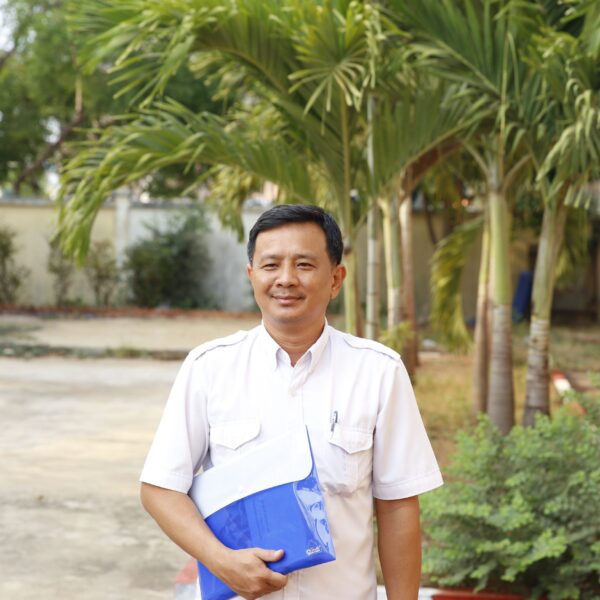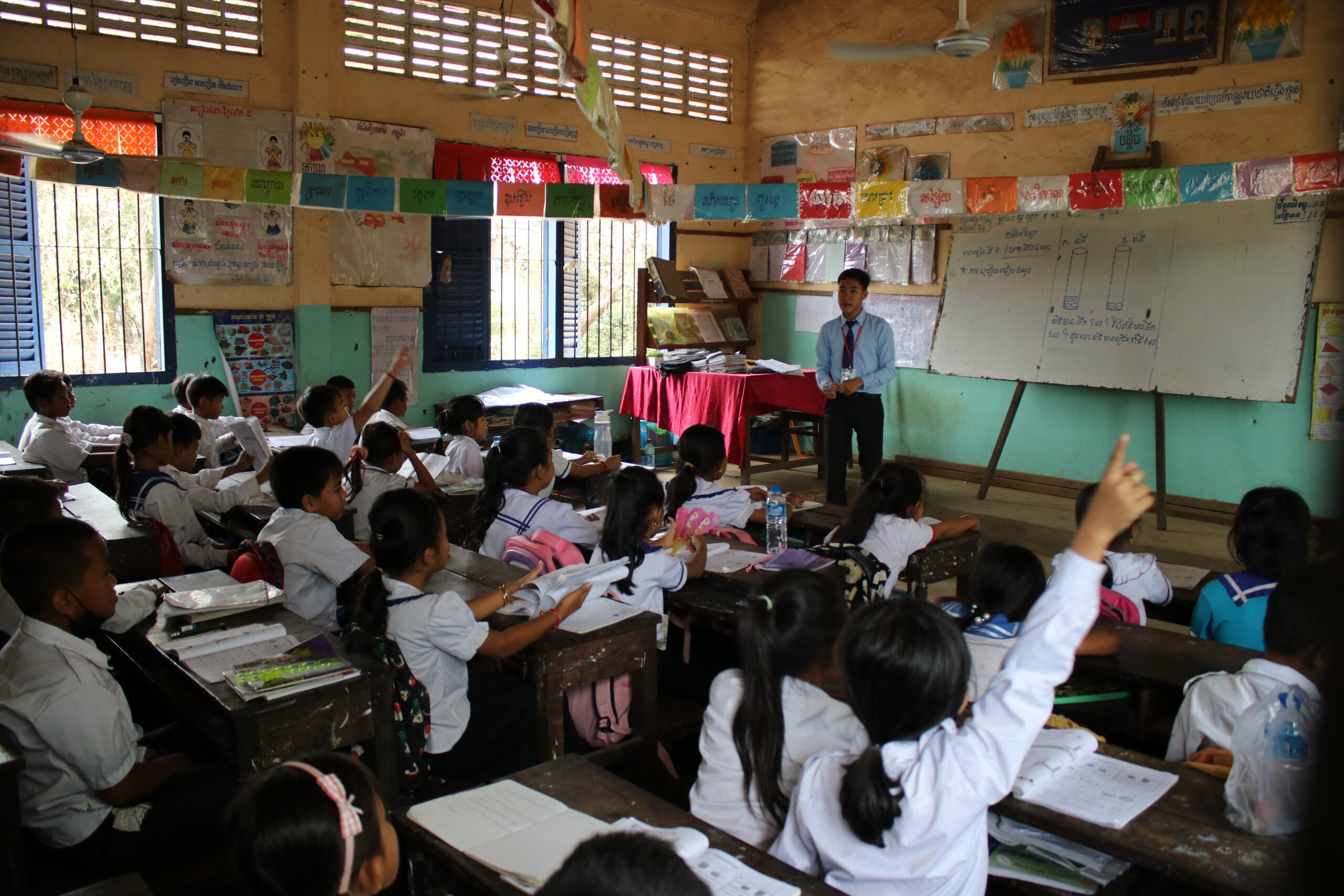The RTTC will soon be providing the Professional Certificate on Multilingual Education, which prepares multilingual teacher trainees to address the cultural, cognitive, and linguistic needs of multilingual education.

The RTTC will soon be providing the Professional Certificate on Multilingual Education, which prepares multilingual teacher trainees to address the cultural, cognitive, and linguistic needs of multilingual education.

Vongsy shares his thoughts and experiences from the Professional Certificate on Multilingual Education Workshop hosted by CARE and UNICEF, as well as his overall involvement in multilingual education.
Reflecting on his work, Vongsy explains, “Through support from CARE, I have had the opportunity to participate in training sessions on the professional certificate, conducted study tours to multilingual education schools in Ratanakiri and Mondulkiri, and prepared and compiled training documents with core teacher trainers.”
When asked what made him proud to participate in the multilingual education program, Vongsy’s passion for preserving Indigenous culture and tradition is clear. He shares, “I have a personal interest in understanding Indigenous peoples worldwide, and especially in Cambodia. I studied in Thailand where I researched Indigenous cultures globally and focused my thesis on the culture and traditions of the Bunong people in Mondulkiri.”

“As the northeast provinces of Cambodia are rich in Indigenous communities, culture, and traditions, I am committed to preserving these invaluable aspects through the inclusion of the multilingual education program in the RTTC curriculum. By ensuring the survival of Indigenous cultures and traditions, we secure a brighter future for generations to come.”
Regarding the current situation for multilingual education implementation in Cambodia, Vongsy notes, “In my opinion, the multilingual education program is currently progressing well, thanks to the efforts of CARE, UNICEF, the Ministry of Education, Youth and Sport as well as other departments. However, for long-term sustainability and success, we need more teachers with expertise in teaching in multilingual classrooms and increased participation from individuals who can contribute to the program’s implementation.”
Delving deeper into the benefits of the multilingual education professional certificate, Vongsy highlights its positive impact on teachers, Indigenous students, and communities.
“In Northeastern Cambodia, many Indigenous students face language limitations. By ensuring access to education and knowledge, we will enhance their learning outcomes by acquiring proficiency in both their mother tongue and the national language. This not only improves their grasp of the national language but also safeguards their culture, language, and traditions for future generations,” he says.

The professional certificate on Multilingual Education also holds significant benefits for RTTC core teacher trainers, Vongsy explains, “Core trainers gain new knowledge and methodologies related to 21st-century skills. They become skilled at implementing multilingual education effectively in their teaching to both teacher trainees and students.”
Vongsy expresses gratitude that Stung Treng’s RTTC has been selected as the training location for the certificate. He believes this opportunity positions RTTC as a knowledge-sharing center for Indigenous communities throughout Cambodia.
Vongsy recognizes that implementing the certificate doesn’t come without challenges, “there is limited research and teaching resources in the Khmer language; mostly, it is in English or other foreign languages. This does add an additional challenge to teacher trainers and trainees who don’t speak these languages.”
To ensure the sustainability and effectiveness of multilingual education certification for trainers, teachers, students, Indigenous students, and their communities, Vongsy highlights the need for ongoing support. He suggests that RTTC requires technical support from the Ministry of Education, Youth, and Sport and stakeholders to provide post-training assistance and field trips to implement multilingual education effectively. Collaboration with authorities and local stakeholders is also crucial in compiling comprehensive training documents and fostering community cooperation.
“This program is essential for our core trainers and teacher trainees at RTTC, and I hope that the multilingual education program will prove beneficial to Indigenous communities, particularly indigenous students.”
This work is part of CARE’s Multilingual Education project funded by UNICEF.